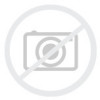Haier MWG7047TW User Manual - Page 8
Limited Use, Not Recommended
 |
UPC - 688057370279
View all Haier MWG7047TW manuals
Add to My Manuals
Save this manual to your list of manuals |
Page 8 highlights
English be used on microwave food once the food has been removed from the oven. LIMITED USE • Aluminum foil - Use narrow strips of foil to prevent overcooking of exposed areas. Using too much foil can damage your oven, so be careful. You should keep distance of 1 inch (2.54cm) between aluminum foil and cavity. • Ceramic, porcelain, and stoneware - Use these if they are labeled "Microwave Safe". If they are not labeled, test them to make sure they can be used safely. • Plastic - Use only if labeled "Microwave Safe". Other plastics can melt. • Straw, wicker, and wood - Use only for short-term heating, such as warming dinner rolls for a few seconds; baskets and bowls may be flammable. NOT RECOMMENDED • Glass jars and bottles - Regular glass is too thin to be used in a microwave. It can shatter and cause damage and injury. • Paper bags - These are a fire hazard, except for popcorn bags that are designed for microwave use. • Styrofoam plates and cups - These can melt and leave an unhealthy residue on food. • Plastic storage and food containers - Containers such as margarine tubs can melt in the microwave. • Metal utensils - These can damage your oven. Remove all metal before cooking. 7















